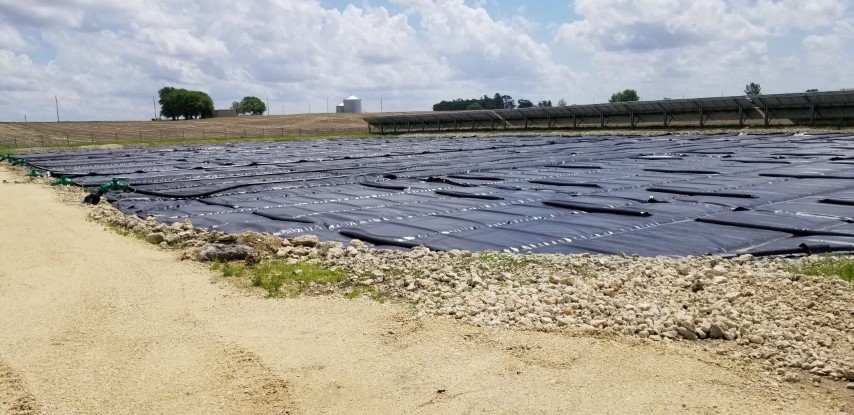How to reduce municipal wastewater treatment plant energy consumption
Energy represents a significant expense across all stages of the wastewater treatment process — from raw sewage collection to effluent discharge. Wastewater treatment plants throughout the U.S. consume more than 30 terawatt hours per year of electricity, amounting to $2 billion in annual electric costs. Estimates suggest that electricity costs constitute up to 40% of a wastewater treatment plant's annual operating budget.
However, reducing wastewater treatment plant energy consumption can be challenging, especially when equipment and infrastructure design do not prioritize energy efficiency. By partnering with a wastewater engineering expert, municipalities can develop innovative strategies and realize the benefits of an energy-efficient wastewater treatment plant.
Benefits of improved wastewater treatment plant energy efficiency
Municipalities can reduce wastewater treatment plant energy consumption by improving the efficiency of treatment methods, equipment and infrastructure. As energy efficiency at Publicly Owned Treatment Works (POTWs) increases, municipalities experience several benefits.
Reduced energy costs
Aggressive long-term energy goals can result in significant cost savings, and municipalities have adopted several strategies to improve efficiency and reduce energy use by up to 30%. Here are a few energy improvement strategies:
- Update aeration equipment and pumps for increased efficiency.
- Shift energy use from peak demand times.
- Generate electricity and heat from biogas through Combined Heat and Power (CHP) systems.
Improved air quality
Reduced fossil fuel consumption enables wastewater treatment plants to lower greenhouse gas and air pollutant emissions. Energy-efficient POTWs not only reduce municipality energy bills but also protect public health by reducing air pollution.
Extended infrastructure and equipment life
Deploying efficient technologies can help municipalities extend the lifespan of infrastructure and equipment. Additionally, efficient equipment requires less maintenance and can significantly reduce instances of emergency discharges by treatment plants.
The benefits of reducing wastewater treatment plant energy consumption have inspired municipalities to develop renewable energy strategies and set ambitious zero-energy or energy-neutral goals. However, limited operating budgets and funding require POTWs to explore cost-effective methods and technologies to reduce energy consumption.
Strategies to reduce wastewater treatment plant energy consumption
The U.S. Environmental Protection Agency (EPA) Planning for Sustainability Handbook for Water & Wastewater Utilities outlines essential steps for integrating sustainability and energy efficiency into a treatment plant's planning process. However, before implementing strategies to reduce wastewater treatment plant consumption, municipalities should conduct energy audits to assess the baseline energy status at their treatment plants.
Once energy-intensive activities are identified, the municipality can develop an Energy Improvement Management Program and incorporate technological and system design improvements. Finally, municipalities can continuously monitor and track energy usage to periodically reassess their efficiency improvements.
Identifying energy-intensive operations
The mechanical aeration process is the most energy-intensive wastewater treatment operation and accounts for 25% to 60% of total treatment plant energy usage. Pumping systems typically consume up to 15% of the total energy used by POTWs. Energy consumption increases when motors, pumps and flow control are misaligned with treatment plant needs. The lack of control over equipment performance also contributes to higher energy bills. Identifying the reasons for increased energy consumption is the first step toward improving wastewater treatment plant efficiency.
Technological improvements and system design
Dissolved oxygen (DO) levels reflect aerator efficiency. To help maintain DO levels without over-aerating the basin, treatment plants can use flexible designs and techniques by installing DO meters, implementing ammonia sensors in aeration basins and controlling blowers through variable frequency drives.
Connecting the DO meter to the plant supervisory control and data acquisition system can allow operators to continuously monitor and control DO levels. For additional energy savings, DO readings can also control aerator speed. Many POTWs rely on water reuse and methane generated from the anaerobic digestion of biosolids to further lower the system energy usage.
Measuring and tracking energy performance
Identifying energy-intensive operations and deploying technological improvements for wastewater treatment is not enough. POTWs should develop energy data tracking methods to monitor and document energy-intensity improvement and energy savings. Various energy data management tools, such as the EPA's Energy Star Portfolio Manager and Energy Assessment Tool or the EnPl tool developed by the U.S. Department of Energy, track energy performance metrics, including influent flow, BOD level and nutrient removal.
Adopting efficiency innovations to reduce wastewater treatment plant energy consumption can be difficult for municipalities without technical expertise. To overcome this barrier, municipalities can partner with dedicated and experienced professionals who can implement innovative, results-driven solutions.
Identifying opportunities for energy savings at your local wastewater treatment plant
At Fehr Graham, our licensed operators take pride in improving communities and preserving the environment. Our team of engineers and scientists provide assistance on wastewater engineering. We have evaluated, planned and designed innovative and cost-effective solutions for varied and challenging projects. When it comes to reducing wastewater treatment plant energy consumption, we can help you transform your local POTW into an energy-efficient system and secure funding for the facility upgrades
Are you wondering how to reduce municipal wastewater treatment plant energy consumption? Fehr Graham is your one-stop solution, offering more than standard engineering and environmental consulting services. Contact us to learn more about our services, or give us a call at 563.927.2060.
Collaborative, Insightful, Results-Driven Solutions
Fehr Graham provides innovative engineering and environmental solutions to help improve the lives and communities of our customers.


